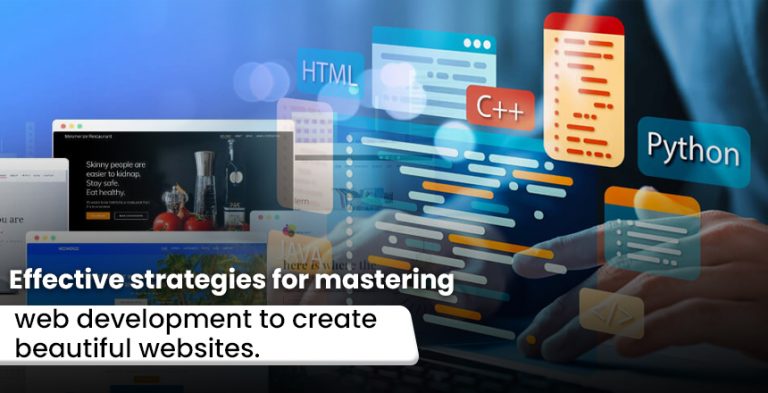Step by step: how to become a software engineer
Software engineering is a profession that holds great prospects and a lucrative career that deals
with creating, testing, and other related things about computer programs and systems. Here is a
step-by-step guide on how to start your career and become a software engineer:
Get the Right Education
The first one is generally attained with a bachelor’s degree in computer science, software
engineering, or information technology. Concentrate on the classes, which are the programming
languages like Java, Python, C++, databases, operating systems, data structures, algorithms,
and software engineering. Getting internship experience in software development during college
is also a very useful other step.
Other positions may require the holder to possess a master’s degree; at the same time, this
may not always be an absolute necessity. Some companies offer software engineering positions
to those with only a bachelor’s degree, and then the employee can acquire a master’s degree
after joining the company.
Develop base technical competence.
Make sure to have built proficiency for the languages and technologies you’d prefer for
applications. Current popular languages and frameworks are Java, JavaScript, C#, Python,
SQL, Linux, Git, and AWS. This entails developing independent coding projects, having to do
similar work on open source platforms, as well as taking online classes so as to fully be able to
master necessary technical skills.
More emphasis has to be placed on programs such as data structures and algorithms as well as
core areas in computer science to enable a good handling of software problems. You will be
prepared for technical interviews likely to prove tough on your wisdom and skill.
Develop a specialty
Finally, although a focus on the broader coverage of many languages as well as platforms is
appropriate, it is useful to establish a subfield of specialization. This could be in a certain area,
such as web design and application, mobile application development, database engineering,
artificial intelligence, game design, or security.
Such specializations enable you to earn more and be ahead of other candidates, so you’d want
to take up such positions if offered. Additionally, you need to make sure your education, skills,
and portfolio are positioned correctly for the niche you’re seeking to specialize in.
Create a Portfolio
When you are in your coursework and other assignments, use and develop an online portfolio of
the application, apps, and websites you designed.
This gives employers some glimpse into what you are into and the skills that you possess. This
means to write clean code, documenting it well in a way that reflects good standards so that
your portfolio shows what you’re capable of.
Get internships.
Internships help you to get practical experience in software engineering and to meet people
from your field. Many paid internships only target current college students and or college
graduates in their early months after graduating.
They should better focus on searching for internships during the summer in IT companies or
startups. There you should continue honing your programming abilities and find out how
development teams function. It is evident that having one or more internships will increase your
resume and prepare you for full-time positions.
Prepare for Interviews
The software engineer interview questions may be divided into technical ones presenting coding
and algorithm schemes and questions that are oriented on your experience and ability to
cooperate and solve tasks.
You do mock interviews as well, and as usual, try solving regular algorithm questions such as
data sort or work on the tree. Also refresh the basic resume tips to ensure that you give a
correct perception of your experience while fitting the job descriptions.
Consider Getting Certified
Certifications are not always a must, but they show that the candidate has current knowledge of
certain technologies and contribute to your resume. Some of the certifications to consider for
entry-level ones are Oracle Certified Associate Java Developer, or CompTIA A+, and Network +.
At a more senior level, obtain professional credentials like the PMP, AWS CSA, or CISSP as
some of the requirements.
It is now time to apply for software engineering jobs.
Once you have the education, the required skills, and sometimes even the experience, start
looking for the open software engineer positions that fit you. Take an entry-level position initially,
or Tier 1. In the resume submitted when applying for each position, ensure you have aligned
yourself to all the mentioned criteria.
Hearken for positions in the large companies that recruit and take graduates through training
programs as well as startups aspiring to enhance their technical talent acquisition. Let the door
be open and see what juicy opportunities knock on your door! As much as possible, also be willing to move to other technical cities should it be necessary.
Continue learning and growing.
In fact, the learning does not stop once you get your first software engineering job. The
technology environment is a dynamic one with a very high change in its environment. Take time
to often learn some new programming languages and the frameworks and methodologies that
are on the market.
Be an avid reader of software development books and weblogs, subscribe to podcasts, and
participate in technology conferences available in the local community. It is desirable to learn
and retain new technical material during professional work. Hear from the senior engineers
around you as well. Learn as too.
You should also think about whether it is something you want to specialize in further down
the road.
Slicing and pivoting this job description, after gaining experience after a few years, consider
going for engineering specialization in roles such as machine learning engineer, blockchain
developer, site reliability engineer, or chief architect. For certain positions, a candidate must
have attained the higher learning level of a master’s or even a PhD.
Specialization is also sustained in order to earn the best money and do the most stimulating job
inventing fresh technologies and systems. Many scenarios for career progression are available
to those software engineers who already have experience in their field.
Summary
Turning into a professional software engineer requires a commitment to learning the newest
technology, designing programming skills, internship working experience, and having the right
degree together with the certificates.
This kind of job feels great as you are able to create new applications that can change people’s
lives at companies and organizations in so many fields.
The general high demand for software engineers, technical skills, and individual problem
solving, combined with team collaboration, poses both great employment opportunities and
outstanding salaries each and every year. That will make one on his/her way to becoming a
successful software engineer, narrowly followed by these steps.








